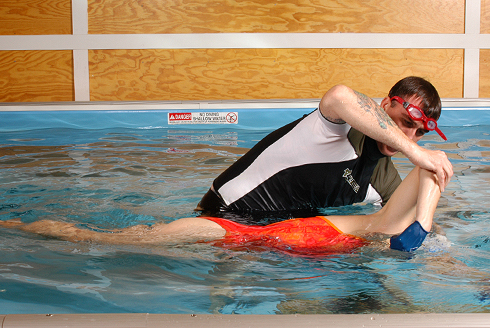Private Training
At Rush Performance coaching we strive to develop the “whole” athlete. We achieve this by addressing all aspects of training: technique, conditioning, starts, turns, underwater work, pacing, nutrition, recovery principles and the most important aspect of all, the mental game. For every athlete avoiding injury, which can happen when poor mechanics are mixed with high volume and intensity, is paramount. We always want to empower the athlete to take control of where their swim is going within the parameters of club swimming. I.e. focus on technique every single stroke with or without coaches’ feedback which can be difficult to get within the club setting. In private lessons we Identify stroke limiters that are holding a swimmer back from reaching their full potential and teach the theories of what fast, efficient swimming is. We work on all 4 strokes along with starts turns and underwater work. By providing the freedom and opportunity to explore what works best for each athlete we can standardize and optimize body position, timing and power. The sessions are designed to help an athlete increase awareness of their body position in the water without visual or tactile feedback. This is one the many things that makes swimming challenging. As a swimmer begins to increase their “swimmer IQ” they can make adjustments to their stroke with greater ease when practicing. The goal is to “out think” the water, not just try to out work it.
Group Training
Weekly 1.5-hour group training sessions focusing on starts, turns, underwater work and breakout strokes. These sessions are open to swimmers who are currently enrolled in a private swim package. The goal of each session is to develop, refine and master each of the variables outside of stroke mechanics that are a crucial part of competitive swimming.
Our Core Values are a set of guiding principles and fundamental beliefs that help our group function together as a team while we work toward a common goal. It’s the” Why we do What we do” at each session. Anything we practice must align with these values.
CLICK HERE FOR RUSH PERFORMANCE COACHING CORE VALUES FOR COMPETITIVE YOUTH GROUP TRAINING

Coaching Core Values for Competitive Youth Group Training
The best way to create a new idea, system or training pattern is in a laboratory type setting within an encouraging learning environment. We want all swimmers to be more of a scientist and less of an athlete at group training sessions. We work on “experiments” (“failure” is part of the creative process) to create something new. Same training equals the same result. New training equals a new and better result. We are focusing on learning skills by encouraging experimentation in a PRACTICE/Laboratory environment not a “workout” environment. The sessions are designed to be more MENTALLY CHALLENGING THAN PHYSICALLY CHALLENGING. Fitness is the by-product of training; it IS NOT THE LIMITER. This will lead to greater results for each athlete that they can control, develop and refine.
Swimmer's Responsibilities
- Don't touch the feet of the swimmer in front of you. SPACING and PACING! We are not trying to win practice.
- Make every stroke, lap, and turn count.
- YOU are responsible for your lane mates. Look out for and encourage one another.
- Team first instead of me first. Typically, you lose the freedom to do what you want when you join a team, we are going to be changing that. Everyone has a say in what we work on each week.
- Focus on the process rather than the results. The process YIELDS the results.
- Don't be trapped by dogma.
- ASK QUESTIONS, but don't take over the practice
Coach's Responsibilities
- Provide the laboratory environment and the "experiments" (training sessions/workouts) for the swimmers to create better, faster versions of themselves.
- Develop sessions to engage thought and skill development. The greatest threat to success is not failure, but boredom.
- Give the opportunity and encourage freedom. The athletes have a say in what we do, and they have the freedom to swim and practice in a fashion that allows them to learn, adjust, and grow. You get to choose your own adventure within the confines of a group setting (Team first, not me first)
- Each swimmer should see measurable progress in reasonable time.
- Do no harm (taken from the Hippocratic oath). Keep swimmers healthy, avoid injury through safe training patterns, and know your athletes.
